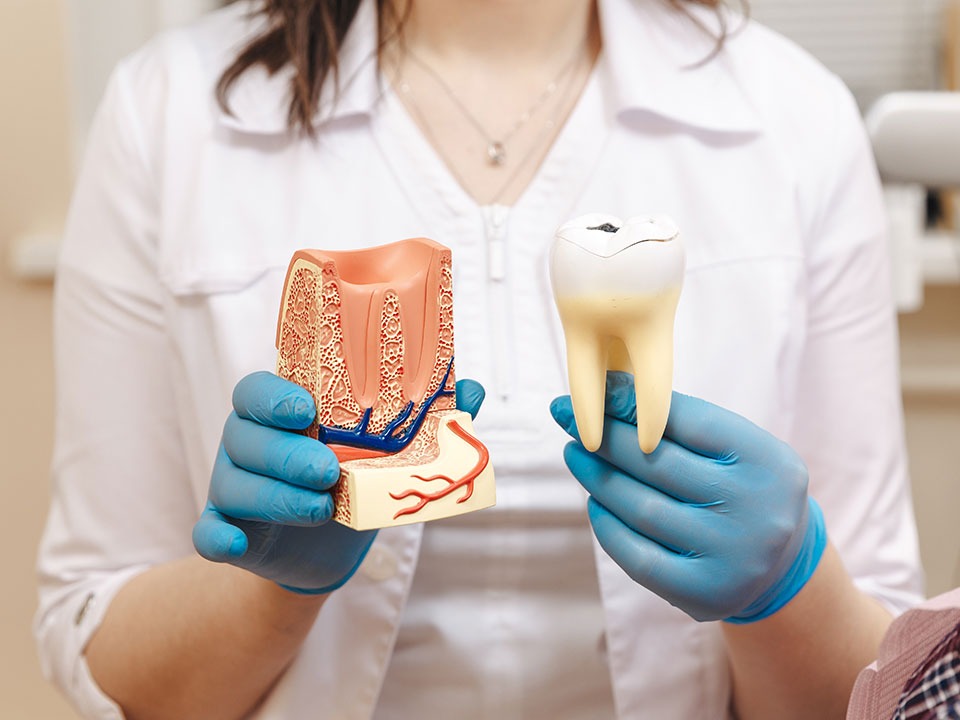When you experience pain in your mouth, it can be challenging to determine if you have a dental problem or are experiencing sinus pressure. Learning the difference should help you with the next steps.
The information below will cover the basics of toothaches and sinus pressure. It will also outline the key differences to help you identify what you are experiencing. It will also cover some things you can do to relieve pressure or pain. So let’s get to it.
What Is Sinus Pressure?
Sinus pressure is a dull, mild, and decentralized aching pain. You will feel this pain over a vast area when the membrane around the nasal passages swells.
When the nasal passages and tissues sustain irritation, mucus builds up instead of draining. The build-up causes swelling and inflammation in the tissues. The inflammation causes pressure on the nerve endings around the sinuses. This creates the dull throbbing pain known as sinuses pressure.
Sinusitis or a sinus infection is the most common cause of sinus pressure. Allergies from airborne irritants can trigger mucus build-up leading to sinus pressure. Additionally, some people with the common cold could develop sinus pressure.
Maxillary sinus pressure causes pain in the cheeks, upper jaw, and teeth. This is the type of sinus pressure that people often confuse with toothaches. There are several sinus passages behind the cheekbones. Therefore, sinus inflammation leads to sensitivity in the mouth because the back teeth are close to one of the sinus passages.
What Is A Toothache?
A toothache is any discomfort or pain in or around a tooth. Toothaches can develop due to multiple causes. Tooth decay is the most common cause, followed by an abscessed tooth. Tooth fracture damaged filing, and infections can also cause toothaches. Repetitive motions such as tooth grinding can also cause toothaches.
People with toothaches develop a sharp throbbing and constant pain in or around the tooth. Some people only feel the pain when pressure is applied to the tooth. You may also notice swelling, redness, and inflammation.
Depending on the cause, some patients will develop a fever, headache, and discharge from the area of pain. Severe pain also makes it difficult to swallow, breathe, or even open your mouth. Some people also develop pain in the ear or head.
Is My Toothache From A Dental Problem Or Sinus Pressure?
Tooth pain can be a symptom of sinus pressure or a dental problem. Differentiating the two is simple; you just need to focus on your symptoms. For starters, a sinus toothache will affect the upper molars since they are closer to the sinus passage.
Dental toothaches can affect any teeth, so the pain will be centralized in a specific area. Sinus toothaches cause pain in the spread-out area. Dental toothaches cause intense pain that rarely improves without medical treatment. Furthermore, they come with sensitivity.
On the other hand, sinus toothaches are dull and mild that get better with sinus relief. If you experience pain in the teeth when bending over, jumping, and laying down, then you have a sinus toothache.
Can Dental Problems Cause Sinus Infections?
Odontogenic sinusitis is inflammation of the paranasal sinuses. It occurs due to dental pathology where trauma, infection, and decay in the maxillary teeth spread to the sinuses. It commonly occurs in people with teeth roots close to or protruding to the maxillary sinus.
How To Treat Sinus Toothaches At Home
Treating a sinus toothache means relieving sinus congestion first. Luckily, there are multiple ways to relieve sinus congestion.
- Steaming. Inhaling hot moist air can help open nasal passages and relieve sinus pressure. That is why you feel better after a hot shower if you have a sinus infection. But instead of taking multiple baths, you can fill a bowl with boiling water and position your head above it. Inhale deeply for a few minutes with your head covered with a towel.
- Hydrating. Drinking lots of water will thin mucus and minimize sinus congestion. This will alleviate sinus pressure, reducing pain. Drink lots of warm water, hot soup, and tea.
- Pain medication. If your toothache is severe, then you can go for over-the-counter pain medication. Ibuprofen is good because it has anti-inflammatory properties to treat fever and pain.
- Nasal sprays. You can get over-the-counter nasal sprays to help decongest your sinuses.
- Sinus Flush. A sinus flush is rinsing your sinuses with a saline solution. It moisturizes and clears the sinuses, which reduces congestion. Patients can use a neti pot or nasal irrigation system to flush sinuses.
- Prescribed decongestants. And finally, if these remedies do not work, visit your doctor for a decongestant prescription.
How To Care For Dental Toothaches At Home
The best ways to relieve toothaches at home include:
- Clove oil. Cloves are an effective way to treat toothaches. Cloves numb pain, reduce inflammation, and act as a natural antiseptic. Dilute 15 drops of clove oil with one ounce of sunflower or jojoba oil. Dab a little of the solution with a cotton ball, and apply it onto the affected teeth.
- Hydrogen peroxide rinse. Hydrogen peroxide relieves pain inflammation and even kills bacteria. It can also heal bleeding gums. Dilute hydrogen peroxide in equal amounts of water, then use it as a mouthwash. Do not swallow the mixture.
- Cold compress. A cold compress is the first defense against toothache for many people. It will constrict blood vessels in the affected area and relieve pain temporarily. This method is ideal for trauma toothaches to alleviate swelling and pain. A cold compress is as easy as a towel-wrapped bag of ice.
- OTC pain relievers. For severe pain, experts recommend over-the-counter pain relievers such as ibuprofen. Contrary to what some people believe, an aspirin directly applied to the tooth will not relieve pain. Swallow it instead. You can also get acetaminophen for kids.
- Peppermint tea bags. And finally, if you have access to peppermint tea bags, dip them in hot water, then let the bags cool before placing them on your tooth. You can also chill them in the fridge. Peppermint has pain relief properties that will help your toothache.
Remember that a dental toothache is a sign of dental distress. Therefore, ensure that you visit your dentist quickly for diagnosis and treatment.







